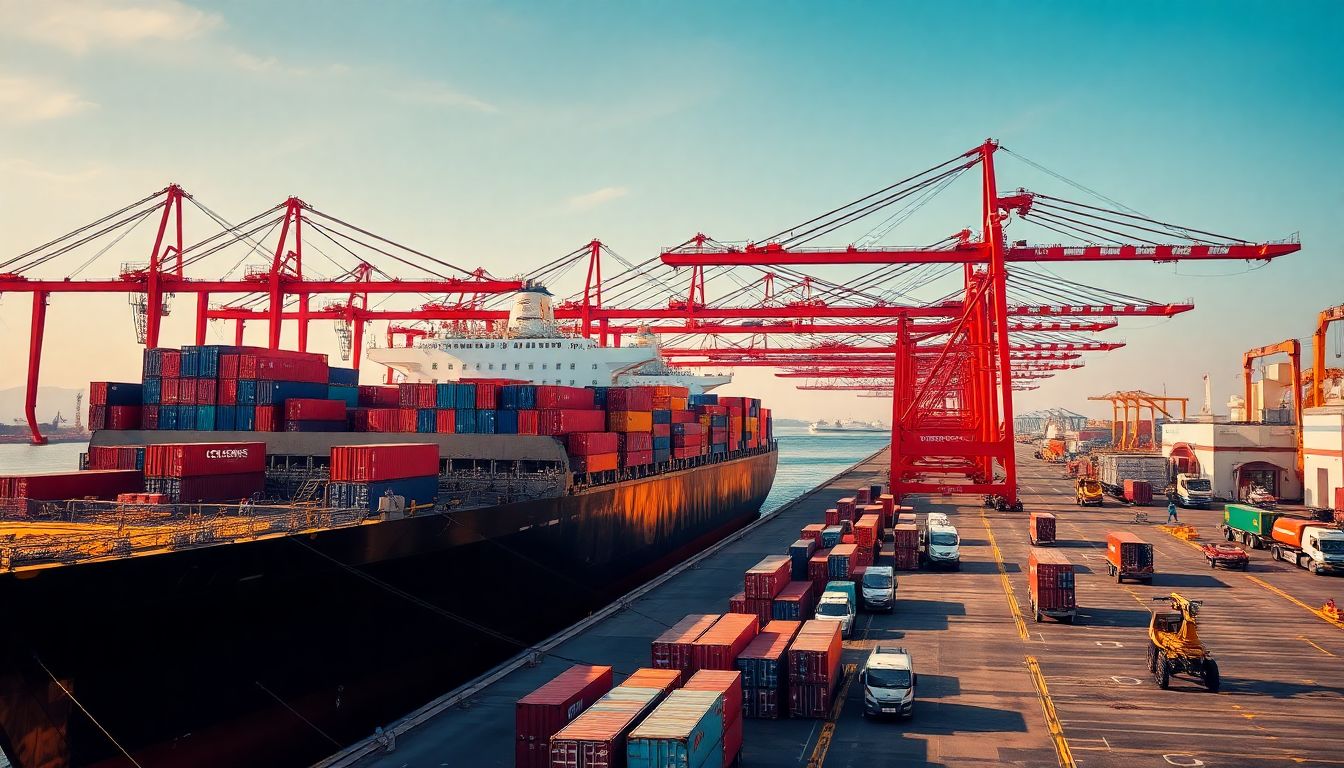
Global trade plays a vital role in shaping today’s economy. The import/export sector is not just about moving goods; it creates jobs and encourages innovation. According to the World Trade Organization, global merchandise trade increased by 22% in 2021, emphasizing the vast opportunities available. However, venturing into this world can be challenging. Understanding the import/export process is essential for anyone looking to succeed.
Understanding the Fundamentals of Import/Export
Defining Import and Export: Key Differences and Similarities
Importing means bringing goods into a country, while exporting involves sending goods out. Here are some key aspects to consider:
- Legal definitions: Each country has varying laws regarding imports and exports, which can affect pricing and availability.
- Common goods: Popular items include electronics, textiles, and agricultural products.
The Role of Government Agencies in International Trade
Government agencies oversee international trade to ensure compliance with laws.
- Customs procedures: Proper documentation is crucial for smooth transitions across borders.
- International agreements: Organizations like the World Trade Organization (WTO) establish rules that global traders must follow.
Essential Terminology in Import/Export
Understanding key terms is vital:
- Incoterms (Incoterms 2020): These are rules that clarify responsibilities between buyers and sellers.
- HS Codes: The Harmonized System codes classify products for tariff purposes.
Finding and Vetting Reliable Suppliers/Buyers
Strategies for Sourcing International Suppliers
Finding reliable suppliers can set the foundation for your business.
- Online marketplaces: Websites like Alibaba connect you with suppliers around the world.
- Trade shows: Networking at industry events can help you discover potential partners.
Due Diligence and Supplier Vetting
Verify the credibility of suppliers before engagement.
- Credentials: Check business licenses and reputation.
- Product quality: Request samples to ensure reliability.
Establishing Strong Business Relationships
Good relationships lead to successful partnerships.
- Effective communication: Regular updates and open lines promote transparency.
- Trust: Building rapport can enhance cooperation and satisfaction.
Navigating the Logistics of Import/Export
Choosing the Right Shipping Method
Selecting an appropriate shipping method can save time and money.
- Sea freight: Ideal for large shipments but takes longer.
- Air freight: Fast and reliable for urgent goods but pricier.
Insurance and Risk Management
Protect your goods during transit.
- Insurance types: Coverage can include theft, damage, or loss.
- Risk management: Identify potential risks and develop mitigation strategies.
Customs Clearance and Documentation
Proper documentation ensures a smooth customs process.
- Necessary documents: Invoices, packing lists, and bills of lading are essential.
- Customs procedures: Understand regulations in both exporting and importing countries.
Managing Finances in International Trade
Understanding Currency Exchange Rates
Currency fluctuations can impact profitability.
- Effects on pricing: Small changes can affect your bottom line.
- Risk strategies: Consider forward contracts to lock in rates.
Payment Methods and Security
Choose safe payment methods to avoid risks.
- Letters of credit: Provides security for both parties.
- Minimizing risks: Using reputable banks can protect transactions.
Tax Implications and Regulations
Be aware of tax responsibilities.
- Import duties: Understand tariffs and their impact on pricing.
- Compliance: Follow tax regulations in all countries involved.
Scaling Your Import/Export Business
Expanding Your Product Line
Explore new markets for growth.
- Market research: Identify demand for different products.
- Diversification: Offering a variety may reduce risk.
Developing a Strong Online Presence
An online presence can reach global customers.
- E-commerce platforms: Use sites like Shopify to sell products.
- Brand building: Create a clear message and aesthetic online.
Exploring New Markets and Partnerships
Expanding your business requires exploring new opportunities.
- Market selection: Analyze potential regions for trade.
- Strategic alliances: Partnering can enhance market entry.
Conclusion
Embracing international trade offers numerous benefits and opportunities. By understanding the import/export process, building strong relationships, and managing finances wisely, you can unlock success in the global market. Take the first step; explore the world of import/export and see where it can lead you.

